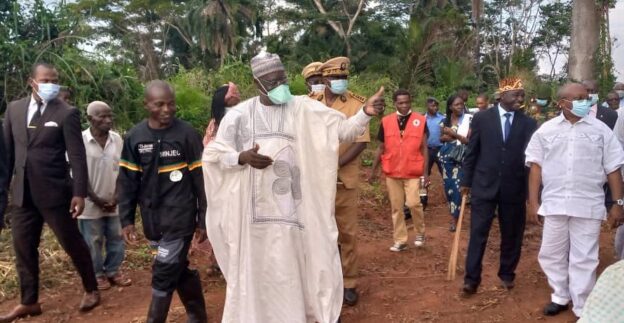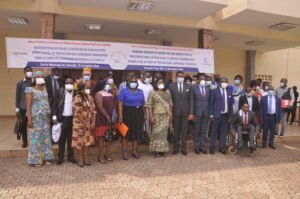
The workshop organized by the ministry of social affairs on November 13, 2020 in Yaounde-Cameroon, gathered various stakeholders and some mayors of targeted councils. This one day meeting was aimed at assessing the implementation of the operational action plan to protect persons with disabilities as part of the national response to the Covid-19 pandemic.
Opening the session, Pauline Irène Nguene, minister of social affairs stressed on the fact that the workshop enters within the framework of government’s national strategic development plan.
“The present evaluation session of our action towards socially vulnerable people in the context of the fight against the spread of the coronavirus is part of the execution of high directives of the Prime minister, Head of government. Moreover, it is being held at a time when the government reminds the national community of the duty of vigilance and remobilization in the face of the resurgence of the pandemic around the world.” She said.
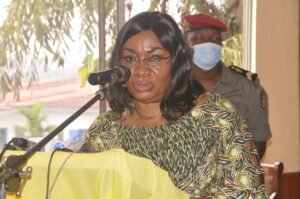 Pauline Irène Nguene said concerted efforts have been put in place by the government, so that people living with disabilities have more access to inclusive means of communication and adapted materials that will help them to fight against the coronavirus disease.
Pauline Irène Nguene said concerted efforts have been put in place by the government, so that people living with disabilities have more access to inclusive means of communication and adapted materials that will help them to fight against the coronavirus disease.
She added that there is great need to increase the fight at the level of vulnerable and marginalized groups and take into account inequalities that could favour the peak of the pandemic.
Besides the minister’s speech were key addresses of the country director of Sight savers and the resident representative of the world health organization (WHO) who are partners in this project.
The humanitarian organisation Sight savers got engaged in the project as part of its mission in Cameroon. The charity organisation presently led in the country by Dr Joseph Oye, works to ensure that children with disabilities, including those with visual impairments are able to go to school and can be educated alongside their peers. It has been estimated that two million people in Cameroon have some form of disability, reason why Sight Savers has increased some of its actions on the field.
The World Health Organization as a UN agency responsible for public health keeps accompanying the government in various actions notably in tackling the current pandemic threats of the Covid-19.
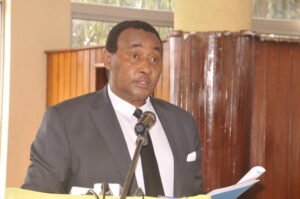
In his address, Phanuel Habimana, resident representative of WHO said disability is more common amongst women, older people, children and adults who are poor.
“People with disabilities often have less education and have deprived living conditions-including insufficient food, poor housing, lack of access to safe water and sanitation. This causes disabled individuals to have the highest risks for infectious and non-infectious diseases. People with disabilities often do not receive the needed health care and approximately half cannot afford it. Data from four countries in the WHO African Region found that only 26% to 55% of people received the medical rehabilitation they needed, while only 17% to 37% received the assistive devices they needed such as wheelchairs, prostheses and hearing aids. In order to improve access to health services for people with disabilities, WHO provides guides and supports Member States to increase awareness of disability issues, and promotes the inclusion of disability as a component in national health policies and programmes…” Phanuel Habimana said.
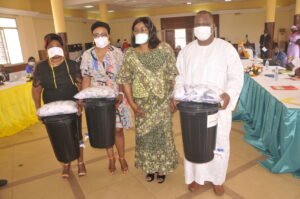
The will and need to protect vulnerable groups from the Covid-19 is a progressive action set up and some mayors were handed over various tools and equipments that will help them in their respective councils.
By Elise Kenimbeni


